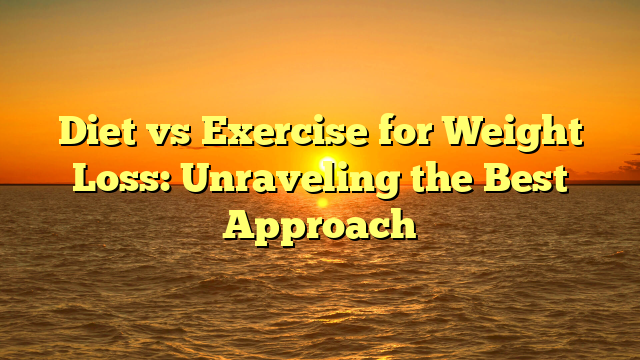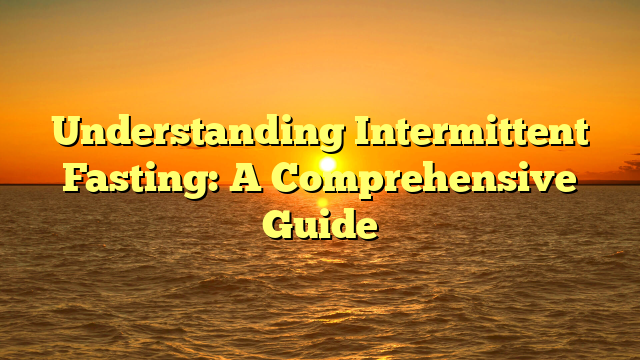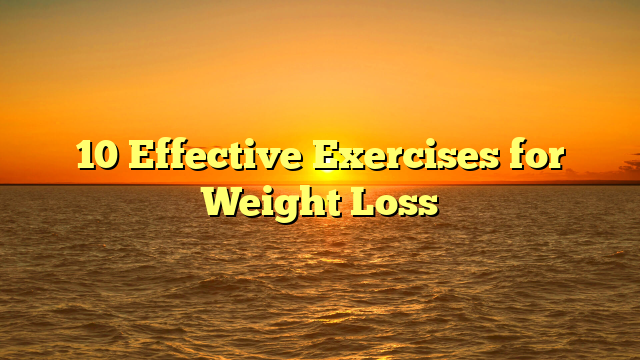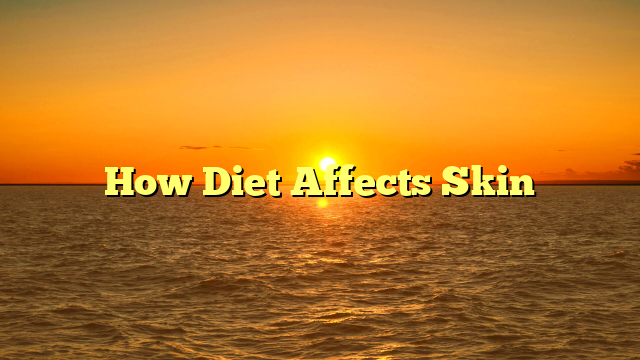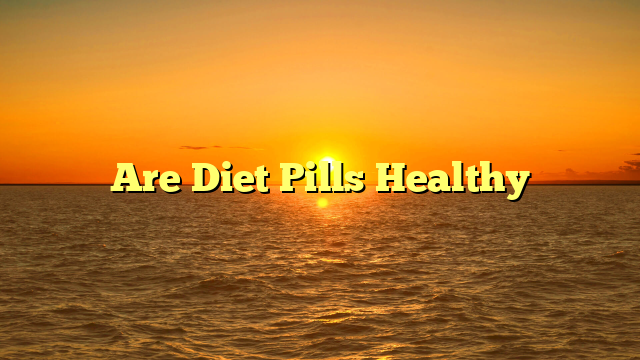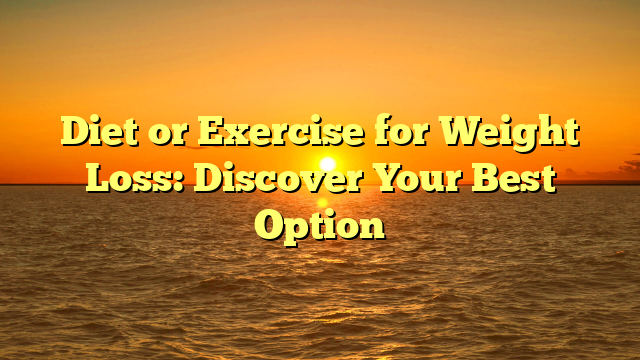Diet vs Exercise for Weight Loss: Unraveling the Best Approach
Diet vs Exercise for Weight Loss …When it comes to weight loss, the age-old debate between diet and exercise continues to captivate individuals seeking effective strategies. The question remains: which approach holds the key to successful and sustainable weight loss? Let’s delve into the intricacies of diet and exercise, exploring their roles and uncovering the winning combination.
Diet vs Exercise for Weight Loss Key Takeaways:
- Both diet and exercise are crucial for achieving effective weight loss
- Exercise helps burn calories, builds muscle, and improves mood during the weight loss journey
- A healthy diet provides essential nutrients, controls calorie intake, and promotes long-term sustainability
- An integrated approach that combines exercise and diet is essential for optimum weight loss
- Exercise alone may not lead to significant weight loss, but it plays a vital role in weight maintenance and overall well-being
The Role of Exercise in Weight Loss
In the journey towards weight loss, exercise plays a crucial role. Engaging in regular gym workouts not only helps burn calories but also contributes to building lean muscle mass, which aids in shedding unwanted pounds. One of the key benefits of exercise is its ability to increase caloric expenditure, allowing for faster weight loss. Cardio exercises such as running or cycling are particularly effective in torching calories, maximizing the weight loss potential.
Exercise is not just about physical changes; it also has a positive impact on mental well-being. Regular physical activity releases endorphins, also known as “feel-good” hormones, that enhance mood and reduce stress levels during the weight loss journey. It provides an outlet for emotional release and serves as a form of self-care.
To summarize, exercise is a vital component of weight loss. It helps in burning calories, building muscle, and elevating mood. Incorporating a mix of cardiovascular exercises and strength training in a gym workout routine can be beneficial for achieving weight loss goals.
The Role of Diet in Weight Loss
When it comes to weight loss, diet plays a crucial role in achieving your goals. A healthy diet not only helps you control your calorie intake but also provides your body with the essential nutrients it needs for optimal function. By monitoring your calorie consumption and making healthier food choices, you can create a larger calorie deficit, which accelerates weight loss.
Choosing nutrient-rich foods is another key aspect of a healthy diet for weight loss. These foods are packed with vitamins, minerals, and antioxidants, which not only support weight loss but also improve your overall health. By incorporating more fruits, vegetables, lean proteins, and whole grains into your diet, you give your body the fuel it needs to function properly and support your weight loss efforts.
Moreover, one of the significant advantages of adopting a healthy diet for weight loss is its long-term sustainability. Crash diets may offer quick results, but they often lead to rebound weight gain once the diet is discontinued. In contrast, a balanced and nutritious eating plan can be maintained as a lifestyle, ensuring that you not only lose weight but also keep it off in the long run.
Benefits of a healthy diet for weight loss are:
- Effective calorie control
- Provides essential nutrients
- Supports overall health
- Promotes long-term weight maintenance
Key nutrient-rich foods for weight loss include:
- Fruits and vegetables
- Lean proteins like chicken, fish, and tofu
- Whole grains such as quinoa and brown rice
- Healthy fats like avocados and nuts
The Winning Combination: Exercise and Diet
When it comes to weight loss, the debate between diet and exercise has been ongoing. However, the truth is that both play a vital role in achieving effective and sustainable weight loss. Rather than choosing between exercise or diet, it’s important to recognize the synergistic effect that occurs when these two elements are combined.
A well-balanced diet provides the body with the necessary nutrients for optimal performance during workouts. On the other hand, regular exercise not only burns calories but also boosts metabolism, complementing a healthy eating plan. To achieve the best results, it’s essential to set realistic goals, mix up your workouts, and practice mindful eating.
Setting realistic goals is crucial for maintaining motivation and progress. By setting achievable targets, you’ll be able to track your success and continue moving forward. Mixing up your workouts not only keeps things interesting but also challenges different muscle groups, leading to improved overall fitness and weight loss. Additionally, practicing mindful eating involves paying attention to your body’s hunger and fullness cues, making conscious food choices, and enjoying each bite.
Diet vs Exercise for Weight Loss: Effective Tips for Exercise and Diet
- Start with a balanced and nutritious diet that includes a variety of fruits, vegetables, lean proteins, and whole grains.
- Incorporate both cardiovascular exercises and strength training into your fitness routine. This combination helps burn calories, build muscle, and improve overall fitness levels.
- Set realistic goals for weight loss and track your progress. Celebrate small victories along the way to stay motivated.
- Mix up your workouts by trying new activities, joining fitness classes, or exploring outdoor exercises. This not only prevents boredom but also challenges your body in different ways.
- Practice mindful eating by listening to your body’s hunger and fullness cues. Avoid distractions during meals and savor each bite to truly enjoy your food.
Understanding the Limitations of Exercise for Weight Loss
While exercise is an important component of weight loss, it does have its limitations. One of the challenges is compensatory eating after exercise. Research has shown that people tend to eat more after a workout, often overestimating the calories burned and justifying indulgent food choices. This can offset the calorie deficit created by exercise, making it difficult to achieve significant weight loss solely through physical activity.
Another limitation is the inability to outrun a bad diet. No matter how much you exercise, if your diet consists of unhealthy, calorie-dense foods, weight loss will be difficult to achieve. A poor diet lacking essential nutrients cannot be offset by exercise alone. It’s important to focus on both exercise and diet to create a sustainable weight loss plan.
Furthermore, there is evidence suggesting that energy expenditure through exercise may be constrained. When the body is subjected to increased physical activity, it compensates by reducing energy used in other processes, such as basal metabolic rate. This means that the additional calories burned during exercise may not translate to as much weight loss as expected.
Understanding the limitations of diet vs exercise for weight loss is crucial for developing a holistic approach that incorporates both exercise and diet. While exercise offers numerous benefits for overall health and well-being, it is important to address the role of diet and make sustainable lifestyle changes to achieve optimal weight loss results.
Diet vs Exercise for Weight Loss – Conclusion
In the debate between diet and exercise for weight loss, it’s important to recognize that both elements are crucial. A balanced approach that combines regular exercise and a healthy diet is the key to effective and sustainable weight loss. Exercise offers numerous benefits beyond weight loss, including improved overall health and longevity. While exercise alone may not lead to significant weight loss, it plays a vital role in weight maintenance and overall well-being.
When it comes to achieving weight loss goals, a holistic approach is essential. By embracing a combination of exercise and a nutritious diet, individuals can experience optimum weight loss and a healthier lifestyle. While exercise contributes to burning calories and building muscle, a healthy diet provides the body with the necessary nutrients for optimal performance. Both elements work synergistically, enhancing the effectiveness of weight loss efforts.
In addition to its impact on weight loss, exercise is also crucial for overall health. Engaging in regular physical activity can improve cardiovascular health, boost mood, and increase energy levels. It is an essential component of a well-rounded approach to wellness.
Diet vs Exercise for Weight Loss – FAQ’s
Is exercise or diet more important for weight loss?
Both exercise and diet play important roles in weight loss. Exercise helps burn calories and build muscle, while a healthy diet provides the body with the right nutrients. It is essential to incorporate both elements for effective and sustainable weight loss.
How does exercise contribute to weight loss?
Exercise contributes to weight loss by increasing caloric expenditure and burning unwanted pounds. Cardio exercises, such as running or cycling, are particularly effective for torching calories. Exercise also helps build lean muscle mass, which aids in burning calories even at rest.
What is the role of diet in weight loss?
Diet plays a key role in weight loss by monitoring calorie intake and making healthier food choices. A balanced diet creates a larger calorie deficit, accelerating weight loss. It also provides the body with essential nutrients, improving energy levels and overall health.
Should I focus on exercise or diet for weight loss?
Instead of choosing between exercise and diet, it is important to recognize that both elements work synergistically for effective weight loss. Regular exercise not only burns calories but also boosts metabolism, complementing a well-balanced diet. Setting realistic goals, mixing up workouts, and practicing mindful eating are essential tips for effective weight loss.
Can exercise alone lead to significant weight loss?
Exercise alone may not lead to significant weight loss if compensation occurs. People often compensate for the calories burned during exercise by eating more, resulting in little to no weight loss. A poor diet based on ultra-processed foods and lacking essential nutrients cannot be offset by exercise alone.
What is the winning combination for Diet vs Exercise for Weight Loss?
The winning combination for weight loss is a holistic approach that incorporates both exercise and diet. Regular exercise offers numerous benefits beyond weight loss, including improved overall health and longevity. While exercise alone may not lead to significant weight loss, it plays a vital role in weight maintenance and overall well-being.

